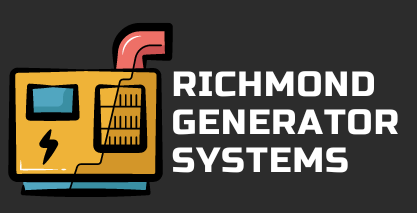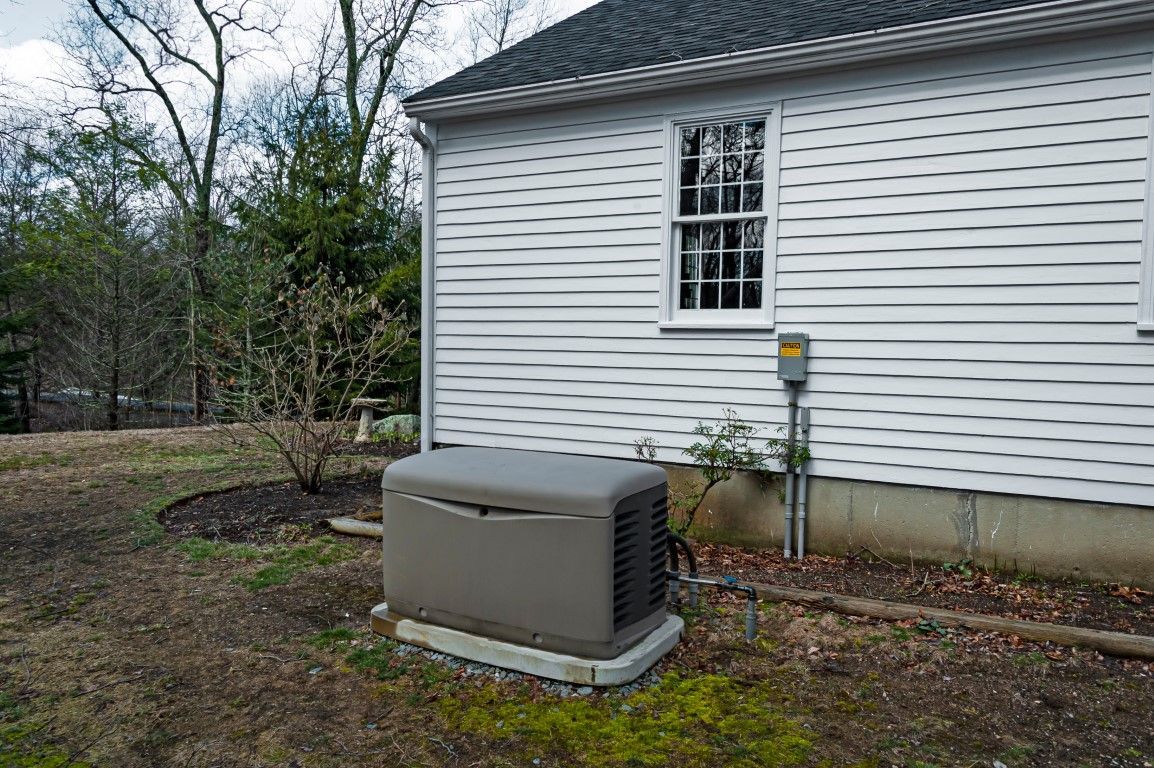
Residential Generators in Richmond VA
A residential generator is a device that provides backup power to your home during an outage. When the electrical grid fails due to storms, accidents, or other disruptions, a generator ensures that essential systems and appliances continue to operate. This includes lighting, heating or cooling systems, refrigerators, and other critical devices. By automatically kicking in when the power goes out, generators offer convenience and peace of mind, keeping your home functional even when the grid is down.
Different Types and Key Features to Consider
When selecting a generator for your home, it's important to understand the various types available. Portable generators are versatile and can be moved around as needed. They are suitable for short-term outages and are often less expensive. Standby generators, on the other hand, are permanently installed and automatically start when the power goes out. They are ideal for long-term outages and offer a higher level of convenience and reliability.
Key features to consider include the generator's power output, which should be sufficient to handle your home's electrical load. Additionally, look for fuel efficiency, ease of installation, noise levels, and any additional features like automatic transfer switches or remote monitoring capabilities.

We will get back to you as soon as possible.
Please try again later.
Key Steps in the Installation Process
Installing a residential generator involves several crucial steps. First, a professional needs to determine the appropriate size and type of generator based on your home's power needs. Next, a location must be chosen that meets local codes and safety requirements, often outdoors to ensure proper ventilation. The generator is then installed with the necessary electrical connections and, for standby models, an automatic transfer switch is set up to handle the transition between the grid power and generator power. Proper installation also includes ensuring that the generator is grounded correctly and that all safety checks are completed to prevent any operational issues.
Regular Maintenance
To keep a generator running smoothly, regular maintenance is essential. This includes checking and changing the oil, replacing air filters, and inspecting the fuel system. It’s also important to test the generator periodically to ensure it starts and operates as expected. Regular maintenance helps to extend the life of the generator and ensures it will function properly when needed.
Proper Usage and Storage of Fuel
Proper fuel usage and storage are crucial for the safe operation of your generator. Always use the type of fuel recommended by the manufacturer. Store fuel in a cool, dry place away from any sources of heat or ignition. Additionally, ensure that the fuel is kept in approved containers and that you adhere to all safety guidelines for handling and storing fuel to prevent accidents and maintain efficiency.
Avoiding Carbon Monoxide Risks
Generators produce carbon monoxide (CO), a colorless and odorless gas that can be deadly if inhaled in large quantities. To avoid CO risks, always operate generators outdoors in well-ventilated areas, away from doors, windows, and vents. Install carbon monoxide detectors in your home to alert you to any potential buildup of CO. Regularly check the generator and exhaust system for any blockages or leaks that could lead to unsafe conditions.
Safe Placement and Operation
The placement of your generator is critical for both safety and efficiency. It should be positioned on a level surface, away from flammable materials and outdoor living spaces. Ensure that the generator has enough space around it for proper ventilation and maintenance. During operation, keep the generator clean and free from debris, and avoid using it in wet conditions unless it is specifically designed for such environments.
Costs and Financing Options
The cost of a residential generator can vary widely depending on its size, type, and features. Portable generators typically have a lower upfront cost, while standby generators require a larger investment due to their installation and additional components. Financing options may include personal loans, credit cards, or financing plans offered by the generator manufacturer or installer. Assess your budget and explore financing options to find a solution that fits your financial situation.
If you are considering a
residential generator in Richmond, VA, contact us today. Our team of experts can help you select the right generator for your needs, provide professional installation, and offer ongoing support and maintenance. Don’t wait for the next power outage to find out if your backup power system is ready—reach out now to ensure your home stays powered and protected.
How to Choose the Right Size Residential Generator for Your Home
When power outages strike, having a reliable generator can make all the difference. Choosing the right size residential generator ensures that you have the necessary backup power to keep your home running smoothly. But with so many options available, selecting the ideal generator for your needs can be overwhelming. This guide will walk you through the key factors to consider when choosing the right size generator for your home, helping you make an informed decision that best fits your needs.

Assess Your Power Needs
The first step in selecting the right size generator is to determine how much power you need. Start by listing all the essential appliances and systems you want to keep running during a power outage. This might include your refrigerator, heating or cooling system, lights, and any medical equipment.
Each appliance has a specific power requirement, usually listed in watts. For example, a refrigerator might require 600 watts, while a central air conditioner could need 4000 watts. Add up the wattage of all the items you want to power to get a total. This will give you a baseline of the minimum wattage your generator should provide.
Consider Starting vs. Running Watts
Generators provide two types of power: starting watts and running watts. Starting watts are the extra power needed to start an appliance, while running watts are the power required to keep it running. Appliances with motors, like refrigerators and air conditioners, often need more power to start than to run continuously.
When choosing a generator, make sure to account for both starting and running watts. For example, if your refrigerator needs 600 running watts and 1200 starting watts, you'll need a generator that can handle both these requirements simultaneously.
Think About Future Needs
While it’s important to meet your current power needs, consider whether you might need to expand in the future. If you plan to add new appliances or systems, choose a generator with a bit more capacity than you currently need. This will save you from having to upgrade your generator later on.
Check for Noise Levels
Generators can be noisy, and the noise level can vary significantly between models. If you live in a residential area or near neighbors, consider a generator with a lower noise rating. Inverter generators are often quieter and may be a good choice if noise is a concern.
Factor in Installation and Maintenance Costs
Once you've selected a generator, consider the cost of installation and maintenance. Standby generators typically require professional installation, which can add to the initial cost. Portable generators might need only basic setup, but regular maintenance is still essential to ensure reliable performance.
Also, factor in the cost of fuel. Generators run on various fuels, including gasoline, diesel, propane, and natural gas. Each fuel type has different availability and costs, so choose one that suits your budget and convenience.
Evaluate Generator Types
Generators come in various types, including portable, standby, and inverter generators. Each type has its advantages and is suited to different needs.
Portable Generators
These are versatile and can be moved around. They’re usually less expensive but require manual setup and fueling.
Standby Generators
Installed permanently outside your home, these generators automatically start when the power goes out and can power your entire home. They are more expensive but offer convenience and reliability.
Inverter Generators
These are known for their quiet operation and efficient fuel use. They are ideal for sensitive electronics but might not provide as much power as standby generators.
Choose a type that fits your lifestyle and power needs. For whole-home backup, a standby generator is often the best choice. For occasional use or smaller power needs, a portable generator might be sufficient.
Review Generator Features
Modern generators come with various features that can enhance their usability and efficiency. Look for features such as:
Automatic Start
This feature allows the generator to start automatically when the power goes out.
Remote Monitoring
Some generators offer remote monitoring, so you can check the status and performance from your smartphone.
Multiple Outlets
Ensure the generator has enough outlets to accommodate all your essential devices and appliances.
Choosing the right size generator for your home is crucial to ensuring you have reliable power during an outage. By assessing your power needs, considering future requirements, and evaluating different generator types, you can make an informed decision that meets your specific needs.
If you need help selecting the perfect generator or have questions about installation and maintenance, don’t hesitate to reach out to us. Our team of experts is here to guide you through the process and ensure you find the best solution for your home. Contact us today to get started and keep your home powered up, no matter what.
Seasonal Maintenance Tips for Your Residential Generator
A residential generator is a vital investment that provides essential power during outages, ensuring your home remains functional and comfortable. To keep your generator in top condition and ready to perform when needed, regular seasonal maintenance is crucial. This guide offers straightforward tips to help you maintain your generator throughout the year.
Spring Check-Up
After a winter of potentially harsh conditions, it’s essential to start the spring with a thorough inspection of your generator. Begin by checking the oil level and replacing it if necessary. Clean or replace the air filter to ensure the engine breathes properly. Inspect the battery for corrosion and ensure it is fully charged. Clean the exterior of the generator, removing any debris that may have accumulated over the winter months.
Summer Preparation
In the summer, generators are often used during high-demand times like heatwaves or summer storms. Ensure your generator is ready by checking the coolant levels and topping them up if needed. Inspect the belts and hoses for signs of wear or damage. Keep the generator’s exhaust area clear of any obstructions to ensure proper ventilation. Regularly test the generator to ensure it runs smoothly and is capable of handling the load you might require.
Autumn Maintenance
As fall approaches, it’s time to prepare your generator for the coming colder months. Check the battery's charge and replace it if it’s weak. Inspect the fuel system for any leaks or blockages and add a fuel stabilizer to prevent the fuel from degrading during storage. Clean the generator's air filter and inspect the spark plugs, replacing them if necessary. Ensure that the generator's housing and surrounding area are free from debris that could cause a fire hazard.
Winter Prep
Before the winter cold sets in, perform a comprehensive check of your generator. Test the generator to ensure it starts properly in cold temperatures. Check the oil level and ensure it’s suitable for winter use, as some oils thicken in cold temperatures. Inspect and clear any snow or ice build-up around the generator to prevent damage and maintain airflow. If your generator is not in use, consider using a cover designed for winter protection to shield it from harsh elements.
Maintaining your residential generator requires attention and care to ensure it performs reliably when you need it most. If you need assistance with generator maintenance or have questions about keeping your system in optimal condition, don’t hesitate to reach out. Contact us today for expert advice and professional service to keep your generator running smoothly throughout the year.
Let's Connect!
Looking for reliable power solutions? Look no further than us! Our expert team is here to help you understand how whole house generators work and why they're essential. Don't get caught in the dark! Check out our buyer's guide and discover the reasons for the loss of power. Contact us today for a consultation!